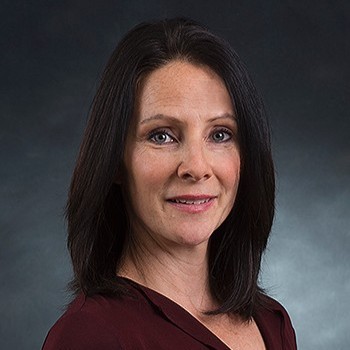Jennifer Cole
Associate Professor of Liberal Arts, Massachusetts College of Art and Design

Courses & Programs
- Sustainability Master’s Degree Program
- Food and Greed: Implications for Human Health and Sustainability
- Natural Disasters in a Global Environment
- Independent Research Capstone
What do you like about teaching at Harvard Extension School?
I have been at HES for 14 years, and have loved every minute of it. My favorite part is working with mid- and early-career professionals who are curious about the world and/or who are looking to make a career transition. Participants in my courses often turn into colleagues, coauthors, and friends. Each has brought his or her own version of intellectual curiosity and excellence to courses, which makes for vibrant discussion and a rewarding experience all around. I also have learned from the program directors, who have been universally excellent in their vision for the program.
What are your areas of expertise/interest?
My expertise is very much of the broad brush variety. I am a water person — classically trained in Earth Science, specializing in groundwater geochemistry of wetlands. As it turns out, a lot of pollutants in groundwater come from agriculture, minerals, and energy. So I have published in these fields, very much with an international flavor. I teach and do research in Afghanistan, China, South Korea, and several parts of the U.S., so I’m interested in connections and what we can learn from others.
What are some essential topics you cover in your course(s)?
We investigate how food passes from production to distribution and consumption and how this impacts air, water, soil, energy, mining, and human health. We look at: genetic modification of food for increased productivity, meat and dairy, additives for shelf stability, organic and local food, the Farm Bill, food subsidies, aquaculture, packaging and transportation, fast food, and food safety. We have a really fun, semester-long project where we look at our personal favorite foods from a supply chain perspective. At the end of the term, we have a great time presenting our weekly looks into our favorite food as a whole meal, including appetizers, salads, main courses, drinks, and desserts. It’s nice because there is no huge end-of-term project, it’s a summary of everything we’ve looked at all term long in a celebratory atmosphere.
What can a student expect to gain from the course?
I like to tell participants that they will get out of the course what they put into it. Some participants have two jobs, are taking care of kids, their parents, and pets, and they have hobbies as well (which pretty much describes me). So they have only about an hour to spend outside of class time. Others have a lot more time to devote to the course. I don’t have any judgment over what people are looking to gain from the class and how much time they are able to spend. I work with people where they are, and do my best to tailor the class experience to each individual. This means students will leave with anything from a cursory knowledge of how the food supply chain works, to a very deep understanding.
Do you have a memory or anecdote from a class or a student partnership that you’d like to share?
I have had several students over the years who connected with me on a deep level. They ended up taking every class I offered, I served as their advisor on their Thesis or Capstone, we published one or more papers together, presented at national or international conferences, and our families connected socially when we were in the same city. The professional connections I have been able to make for them, and vice versa, have been invaluable. For example, one such student, Drew Troyer, has guest lectures in pretty much all of my classes. He’s been in every nuclear power plant in the country; he created and runs a land trust; we have three coauthored publications; and we have dinner together with our families often. He and his wife are among my closest friends AND most valuable professional colleagues.
About Jennifer Cole
Jenn Cole is concurrently on the faculty at the Johns Hopkins School of Advanced International Studies and the Graduate School of Sustainability at Harvard Extension. Previously, Dr. Cole was on the faculty at Harvard University in Earth and Planetary Sciences and served as Director of Environmental Studies at Northeastern University. Dr. Cole has over 40 publications in the fields of energy, wetlands, and agriculture, and has written books on natural disasters. She holds a Ph.D. in earth sciences from Syracuse University. She is an elected member of the Geological Society of America’s Geoscience in Education Committee as well as their Geology in Public Policy Committee and the GeoHeritage Panel. She also has a career in the environmental consulting field, serving as an expert witness in wetlands cases, and representing town conservation commissions on river and wetland protection act cases. She was Senior Hydrologist at Weston and Sampson Engineers, Inc., and is principal at her own private consulting firm, Rivers Consulting. She is a Conservation Commissioner in the Town of Otis, MA. Dr. Cole has given many invited talks, including the US Environmental Protection Agency and The Weston Observatory. She represented Harvard’s Department of Earth and Planetary Sciences at the White House on two occasions.